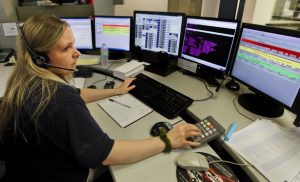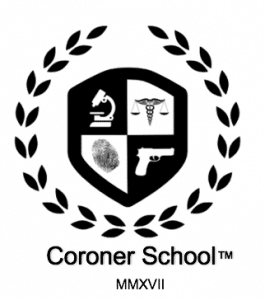 The stress of 911 call-takers
The stress of 911 call-takers
Thursday, January 15, 2015
In 1967, President Lyndon Johnson’s Commission on Law Enforcement and Administration of Justice recommended that police departments have a single number for the public to call when they need police services. In 1968, Haleyville, Alabama, became the first city in the United States to start using the 911 system.
Over the next several years, the 911 emergency phone system rolled out across the United States with a campaign to educate the public to dial “9-1-1” to report an emergency. Today, the modern 911 call center is staffed 24 hours a day, 365 days a year with police/fire dispatchers and 911 call-takers. These dedicated professionals are the lifeline for police and fire personnel dispatched to emergencies.
When the public calls 911 to report an emergency, the 911 call-taker answers the phone using the Computer Aided Dispatch (CAD) system. The 911 call-takers are able to view the incoming call address or nearest cross streets if using a cellphone.
The call-taker then codes the incoming call for dispatchers, sending it to the computer screens of police/fire dispatchers. The emergency dispatcher then determines which emergency units to send based on the information received from the 911 call-taker.
Nonstop stress
Working in a 911 call center is stressful. Hundreds of emergency calls are received during each shift, and it all starts with the 911 call-taker answering the phone with the standard “911 emergency, do you need police or fire?”
When citizens call 911, they are often panicking because they are in an emergency and need police or fire service immediately. The 911 call-taker is trained to stay calm and speak in a clear tone, get the address and nature of the call, and make an immediate decision so he/she can electronically code the call in the CAD system for dispatch.
The stress can be overwhelming at times:
- A young mother is calling because her baby is not breathing, and she does not know how to perform CPR.
- Another person calls at the same time to report the neighbor’s house is on fire, and there are elderly and children possibly trapped inside.
- A few minutes later, another call comes in saying a motor vehicle accident is being reported with injuries.
The 911 call-takers and emergency dispatchers deal with people in crisis, and they are hysterical when they dial 911 for help. It takes a mature calming voice on the other end of the line to reassure and start help on the way.
The pace is nonstop, and seldom is there a break in the action before the next 911 call comes into the center, and the process repeats itself. The stress can be overwhelming, even for the most seasoned and resilient call-taker and emergency dispatcher.
The study
In 2012, professors Heather Pierce and Michelle Lilly from Northern Illinois University completed a study and published their work to the Journal of Traumatic Stress. The title of their research article is “Duty-related trauma exposure in 911 telecommunicators: Considering the risk for post-traumatic stress.”
The study found that 911 call-takers and emergency dispatchers reported significant emotional distress directly related to handling emergency calls for help, and the repeated exposure has increased their risk for developing post-traumatic stress disorder (PTSD).
This does not indicate that those working in 911 centers are going to develop PTSD. It only means they are in a higher risk category and to ensure that stress management programs are available along with professional mental healthcare access.
Local and state governments have a responsibility to make sure that they have professional mental healthcare providers available to serve not only the police officers, firefighters and paramedics, but also for the 911 call-takers and emergency dispatchers. Without them, no emergency lifeline would be possible for citizens or first responders.
About the Author
Mark Bond has worked in law enforcement and has been a firearms instructor for more than 29 years. His law enforcement experience includes the military, local, state and federal levels as a police officer and criminal investigator. Mark obtained a BS and MS in criminal justice, and M.Ed in educational leadership with summa cum laude honors. As a lifelong learner, he is currently pursuing a doctoral degree in education with a concentration in distance education. Mark is currently an assistant professor of criminal justice at American Military University and American Public University and is one of the faculty directors in the School of Public Service and Health.
Help us learn more about our community.
Take this short 10 question survey to help us tailor our podcast and training for you.
 Coroner School™
Coroner School™
This school is designed for anyone investigating death. Coroners, Medical Examiner Investigators, Police, and Forensic students. This hybrid course looks at death investigation from a combined perspective of law enforcement and medicolegal death investigations.
Coroner School™ is a Nationally Accredited online training designed to teach all aspects of death investigation and scene management. Unlike any other coroner training today, this course offers a blended learning style combining online self-paced video training, along with opportunities of live interaction with instructors several times throughout the program, and a unique private Facebook group open only to students of Coroner School™ where everyone can interact and ask questions.
Coroner School™ is a six week guided course with certified instructors. However, at the end of the six weeks you still have access to all videos, downloadable material and the private Facebook group. You can return to the online school anytime to finish up the courses or as a refresher in certain topic areas.
 Death Investigation Training Academy has one goal; to provide the highest quality training using the most modern methods and technology. Death Investigation is all we do ! Many training agencies are well rounded and can fulfill the training needs in nearly every category of public policing and investigation. At DITA we concentrate on death investigation and everything surrounding those investigations. By becoming hyper-focused in this field we are better able to provide intense and specific training you and your investigators need.
Death Investigation Training Academy has one goal; to provide the highest quality training using the most modern methods and technology. Death Investigation is all we do ! Many training agencies are well rounded and can fulfill the training needs in nearly every category of public policing and investigation. At DITA we concentrate on death investigation and everything surrounding those investigations. By becoming hyper-focused in this field we are better able to provide intense and specific training you and your investigators need.
coroner,police training, darren dake,sheriff,deputy,coroner association,murder scenes,auto fatalities,csi,first responders,autoerotic fatalities,become a coroner,forensic science crime scene investigation,forensic science crime,scene investigator,forensic training,forensics training,how to be a crime scene investigator,how to become a death investigator,how to become a medical examiner,how to become a medical examiner investigator,medical examiner investigator training,medical investigator training,medicolegal death,medicolegal death investigator training,murder scenes,pictures of murder scenes,murder,real murder crime scenes,traffic deaths,traffic fatalities,what does it take to be a coroner,what does it take to be a criminal investigator,firefighter,fire training,firefighter training,autoerotic fatalities,become a coroner,coroner information,crime scene clean up training,crime scene cleaning training,crime scene cleanup training,crime scene investigation,crime scene investigation classes,crime scene investigator courses,crime scene investigator school,crime scene jobs,crime scene photography,crime scene photography training,crime scene technician,crime scene technician training,crime scene training,criminal investigation,criminal investigator,criminal justice,criminal justice forensic science,criminal justice forensics,criminal scene investigation,death crime scenes,death investigation training,death investigator training,death investigators,forensic death investigator,forensic investigator,forensic photography, crime scene clean up,crime scene bio-hazard, using plants in criminal investigation,forensic botany,dr.jane bock, lee and karen dickson,Dr. Fahmy Malak
2 comments on “911 Call Takers and Coroner School”
Leave a Reply
You must be logged in to post a comment.



Wow that was an emotional show !! As a former EMT I can relate and have had some of the same experiences being on the first responder side.
Also do u have links to the other podcasts you mentioned
http://www.stitcher.com/podcast/sword-and-scale
http://www.stitcher.com/podcast/within-the-trenches